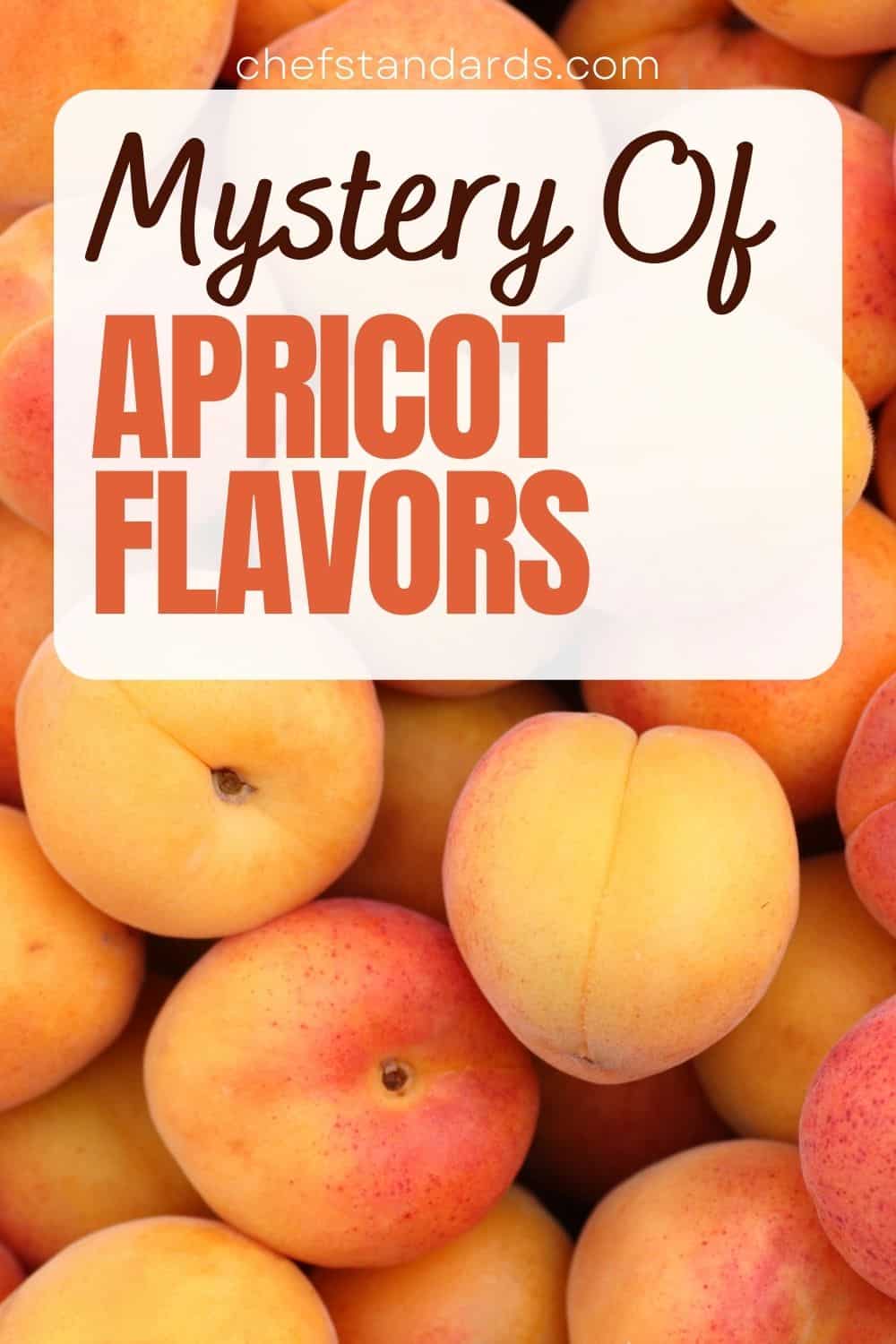They are one of the most popular stone fruits that nature can offer and many people like to enjoy their freshness and unique flavor from time to time.
Apricot fruits come from a fruit tree that belongs to the family Rosaceae. They are planted across the tempered world, particularly in the Mediterranean.
Apricots are quite nutritious and healthy fruits since they are full of antioxidants, vitamin A, and beta-carotene.
But, what do apricots taste like? Well, although they are considered sweet fruits similar to peaches, apricots also have a punch of sour flavor.
However, that is just a general description of apricots’ flavor profile and there is much more to say.
Unripe, Ripe, Or Overripe: What Do Apricots Taste Like?
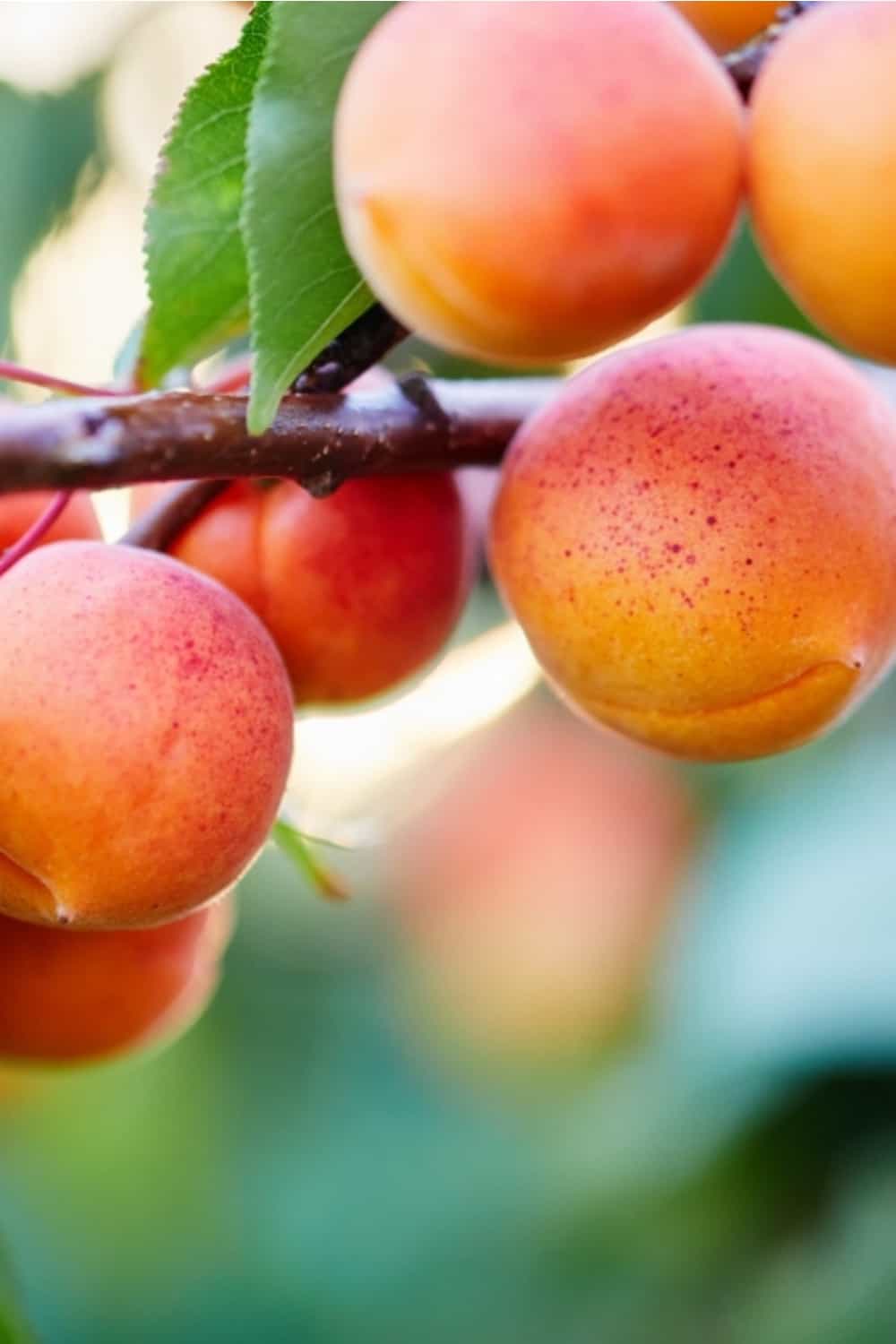
As is the case with any other type of fruit, you can not stop the ripening process of apricots, so you will be able to experience them when unripe, ripe, and overripe.
Of course, that also influences their flavor profile among other things, so it is not a bad idea to get to know all of their flavor profiles.
What Do Fresh Ripe Apricots Taste Like?
If you have the luck to find fresh, ripe apricots, you will provide your taste buds with a nice combination of sweet and slightly tangy flavors.
The sweetness, of course, comes from the natural sugars in the fruit, while the tanginess is the direct consequence of apricots’ slightly acidic nature.
Compared to other similar fruits (mostly stone fruits), apricots are much tarter, but still quite sweet so you can enjoy them as a sweet treat.
If you are curious about their texture, the most important thing to know is that ripe apricots are quite soft (due to the water content), but still firm enough (due to the fiber content) to give you just a slightly crunchy bite.
Apricots also have smooth, velvety skin that is slightly fuzzy to the touch.
Finally, the aroma is also a huge part of the overall experience, and the flesh of a ripe apricot is a bit fragrant, with a distinct aroma that is both fruity and floral, especially when you cut the fruit open.
What Do Unripe Apricots Taste Like?
Aside from the fact that they have a different green or yellowish color compared to the warm, golden-orange color of ripe ones, unripe apricots also have a slightly different taste and texture.
When still unripe, apricots tend to be very sour and astringent, with a slightly bitter aftertaste.
This is due to the higher levels of tannins (natural compounds that create a dry, puckering sensation in the mouth), which have not yet broken.
Aside from that, unripe apricots tend to have less sugar than the ripe versions and that is why they are not too sweet.
When it comes to texture, they are quite firmer and the flesh can be tough and more fibrous. Also, the skin is less velvety and can be difficult to bite through.
Finally, the aroma is also a bit different, i.e. unlike the sweet fragrant aroma of ripe apricots, unripe ones have a typically sour and slightly pungent aroma, with a hint of bitterness.
What Do Overripe Apricots Taste Like?
Finally, if the apricots stay on the tree for too long or if they are stored outside for an extensive period of time, they tend to become overripe.
In that case, they will become extensively sweet and may have a slightly fermented taste which can be pretty unpleasant, speaking from my own experience.
Also, the flesh of the fruit becomes very soft and mushy, and the skin may start to wrinkle and become discolored.
This is also very important to know because overripe apricots are more prone to spoilage and mold growth since the mushy flesh is an ideal home for many harmful bacteria.
Aside from that, overripe apricots have a relatively lower nutritional value than unripe and, especially, ripe versions.
The Flavor Profiles Of Different Forms Of Apricots
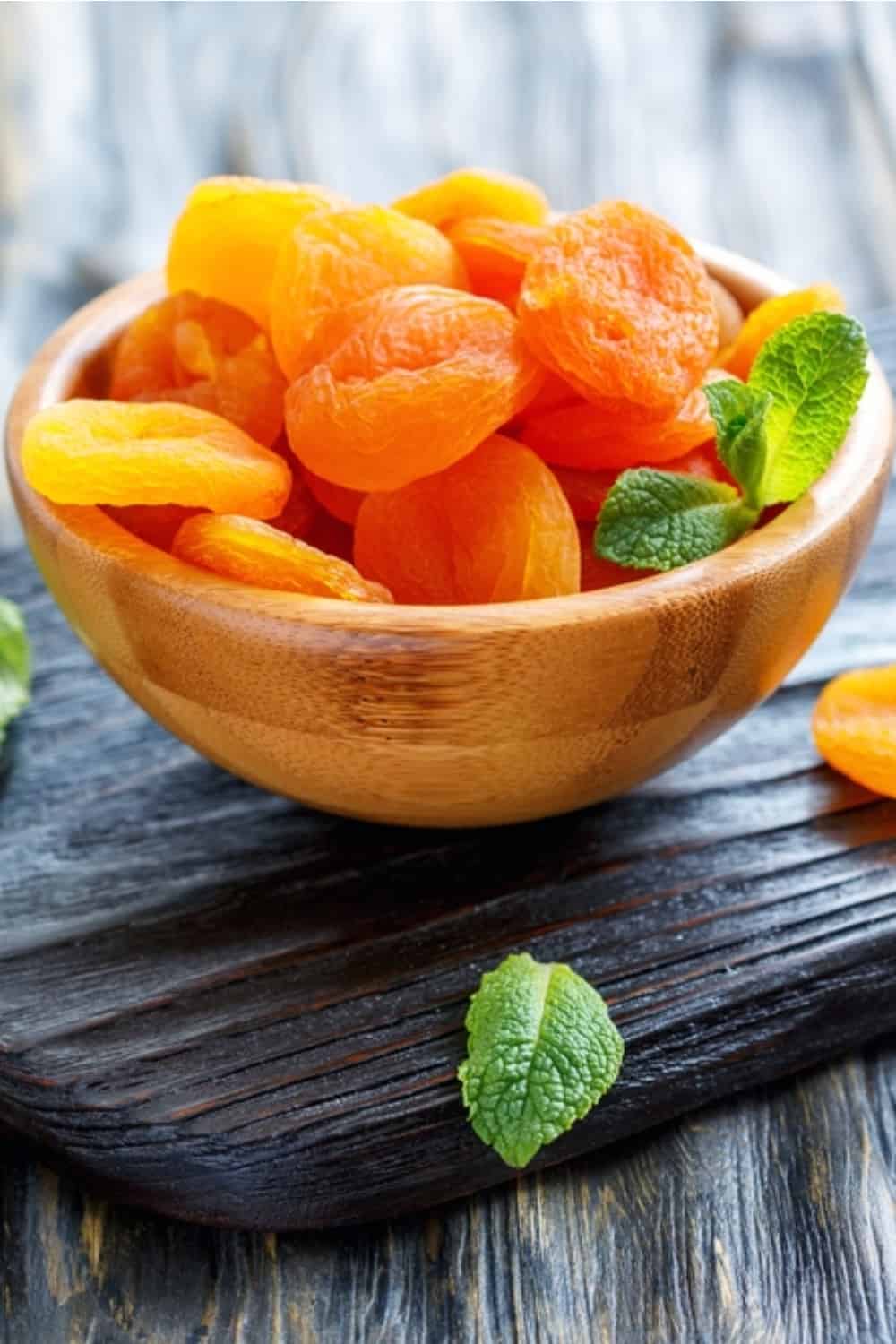
Apricots are not just consumed fresh and on their own, but they can be enjoyed in various forms. So, it is not out of hand to get to know the flavor profiles of those forms of this amazing and versatile fruit.
What Do Dried Apricots Taste Like?
Unlike fresh apricots which are only available from early May to July, you can enjoy dried apricots all year long since they have a longer shelf life.
Although similar, fresh and dried apricots have some differences in flavor that need to be discussed.
Dried apricots also have a combination of sweet and tangy flavors, but their overall flavor profile is more concentrated and intense.
Sweet flavors are more pronounced and they can also contain some hints of caramel or honey flavors.
However, the sweetness is not the only pronounced flavor because the tartness that comes from the fruit’s natural acidity is also more concentrated.
Their texture is quite different from the fresh ones since dried apricots are chewy and slightly sticky, with a slightly rough exterior.
Aside from that, dried apricots are less juicy than fresh ones since they have a much lower water content.
So, they are not the best choice if you are after some extra refreshments.
What Do Pickled Apricots Taste Like?
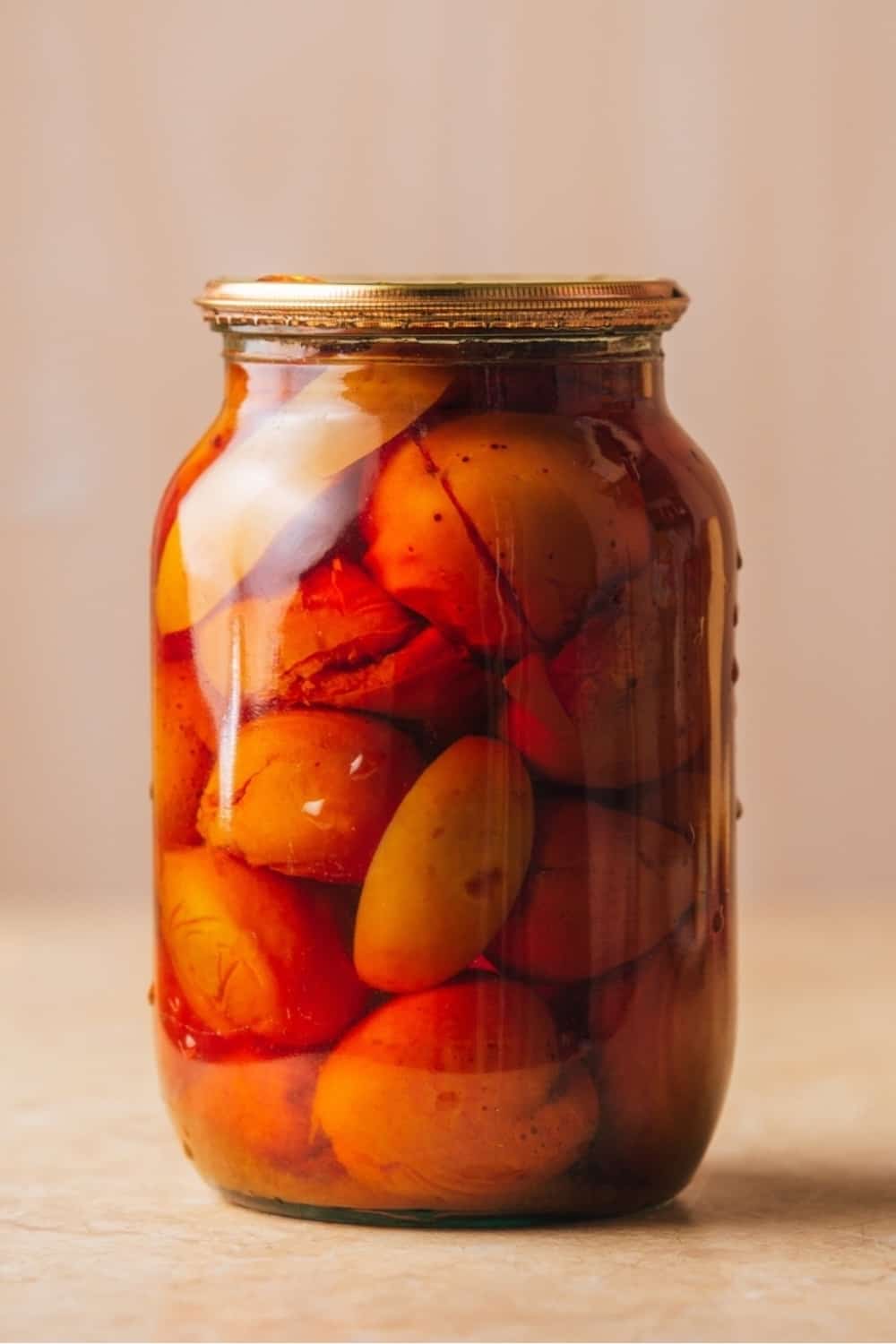
The answer to this question can be a little complicated since there are various ways to make pickled apricots. However, there are some general flavors that are present in every type of pickled apricot.
When making pickled apricots, they are soaked in a vinegar solution that usually contains sugar, spices, and herbs.
This combination can provide your apricots with a combination of tangy, sweet, and savory flavors that may be quite appealing.
Some people also add various flavorful spices to their pickled apricots, like cinnamon and ginger for example, and those can add some additional spicy flavors and complexity as well.
When it comes to texture, it can vary from soft and tender to slightly firm and chewy, depending on how ripe the fruit is and how long it has been pickled.
If you use ripe apricots instead of unripe ones, the texture will be softer and more tender. The same result is when you let your apricots in the pickling solution for longer.
What Is The Flavor Profile Of Apricot Jam?
If made the right way according to the recipe, apricot jam can provide you with delicious flavors that are quite similar to the flavors of fresh apricots.
However, there are of course some slight differences since jam contains other ingredients besides apricots themselves.
Aside from finely chopped apricots, sugar, lemon juice, and a bit of salt are also added to the jam.
Depending on the amount, the sugar can add some extra sweetness to the jam besides the natural sweetness of the apricots. However, that sweetness is well-balanced due to the addition of lemon juice which adds some extra tanginess to this delicious product.
What’s more, the salt can provide your jam with just a small hint of saltiness that can enrich the overall flavor profile.
Not to forget, some people also add other ingredients to make their jams more complex in flavor.
One of the most popular additions is definitely a vanilla extract which can also balance the tartness, add a specific, sweet vanilla flavor, and a subtle aroma to the jam.
What About The Flavor Profile Of Apricot Juice?
Just like it is the case with most other types of fruits and juices made from them, the flavor profile of apricot juice is much the same in its core when compared to whole, fresh apricots.
However, some flavors are more pronounced because of the specific juice extraction process.
Namely, the juice itself has a more concentrated flavor because, in the process, much of the fiber and water from the fruit is removed.
That leaves the juice with just its natural sugars, acidic compounds, and various other minor compounds as well.
The juice, therefore, has a more pronounced sweet flavor, but it is still fruity and tangy to some extent, similar to the fruit itself.
When it comes to the texture of apricot juice, there is not much to say except that it is smooth and thin, with a consistency that is similar to other fruit juices.
It may contain some pulp and fiber is made from the freshest variety of apricots but, if you are not okay with that, you can always strain it through a mesh strainer to remove any remaining solids for a smoother texture.
I also have to emphasize that apricots are used as a sweet component to create the flavor profile of red bull, i.e. The Summer Edition (Apricot-Strawberry).
How To Use Apricots To Enjoy Their Best Flavor?

Aside from eating them fresh and on their own, the uses of apricots are quite limitless and they can be used in various types of dishes to add their unique flavor and texture. Below are some of the best ways to enjoy this delicious fruit.
• Baked Goods: Just like some other sweet fruits, like bananas for example, apricots can also be used in baking recipes to provide them with additional flavor and texture.
When you bake apricots with your favorite cakes, muffins, or bread, their natural sugars will caramelize and, consequently, create a deeper, richer flavor that compliments the sweetness of your baked dishes.
Aside from that, you will also have a more nutritious and healthy dish since apricots are full of various beneficial nutrients and antioxidants.
• Savory Dishes: You can add apricots to various savory dishes including stews, curries, salads, roasted meats, and many others.
Since apricots have a sweet and tangy flavor, they will give your dish a unique and delicious taste. Also, the natural sweetness of the fruit will help balance the savory and salty flavors of the dish, creating a more balanced flavor profile.
When you cook apricots, they tend to become soft and even jammy which can serve as a great texture addition to your dish.
• Salsa: There are many reasons to add apricots to your salsa and one of the most important is flavor.
Apricots, when combined with other salsa ingredients like onions, various chili peppers, tomatoes, herbs, and spices, can help balance the heat and acidity of those ingredients and create a well-balanced flavor profile for the dish.
Aside from the flavor, if you finely dice or chop your apricots, they will provide your salsa with a slightly chewy texture that complements the crunch of the other ingredients like onions for example.
• Smoothies: Like many other different fruits, apricots can also be added to various types of smoothies. In this case, apricots are quite versatile since they can be added to all sorts of smoothies, from fruit smoothies to those made with yogurt.
Instead of adding refined sugars to your smoothie, you can provide it with sweetness by just adding a few slices of apricots and you will achieve a healthier version.
Aside from that, if blended the right way, apricots can also create a creamy texture in the smoothie and add some richness.
• Grill Your Apricots: If you want to achieve a unique combination of sweet and smoky flavors, toss your apricots on the grill.
The heat will make their natural sugars caramelize, intensifying their sweetness and adding depth to the flavor. The grill itself will do the work in terms of smoky flavors.
When grilled, apricots will become softer and more tender and they will melt in your mouth which many people find quite appealing.
• Sauces: You can use apricots to make delicious sauces that can add a unique sweet and tangy flavor to both savory and sweet dishes.
You can make both sweet and savory sauces. One popular type of sauce that uses apricots to create a sweet component is Chamoy sauce.
The flavor profile of Chamoy sauce contains 5 dominant flavors, including sweet, tangy, spicy, sour, and salty.
Apricots Flavor Profile Compared To Other Stone Fruits
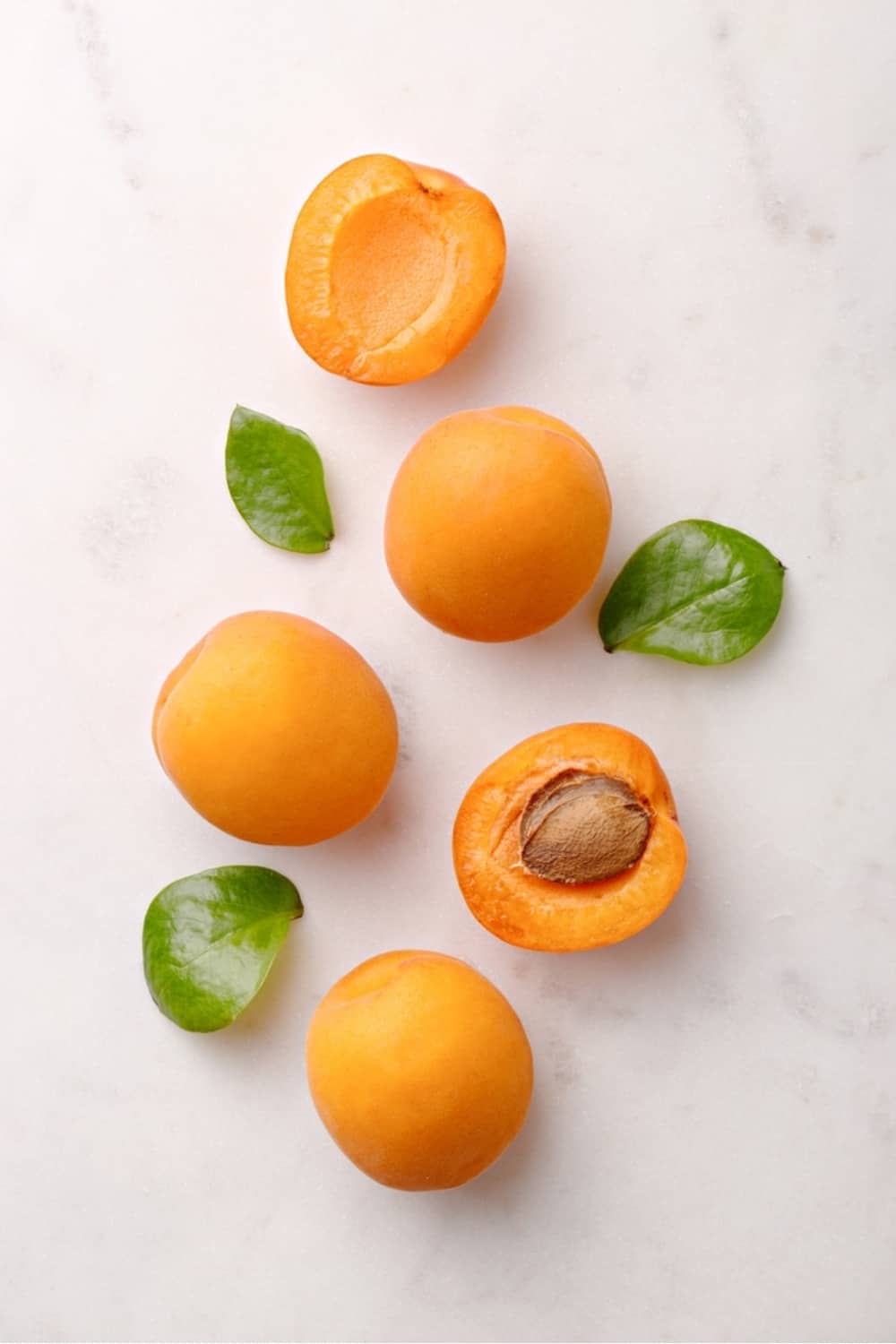
Finally, apricots belong to the group of stone fruits and some of the members of that fruit group taste similar to our apricots. It is not out of hand to know those slight flavor differences to understand the bigger picture of the flavor profile.
Apricot Vs Peach
Both are members of the same fruit family, but they can also be used interchangeably in many recipes because they are quite similar in flavor and texture, but not the same.
First, both types of fruits have a unique combo of sweet and tangy flavors, but peaches are quite sweeter and juicy as well.
Apricots also have soft flesh to some extent that is a bit juicy, but peaches are quite softer and juicier and they have fuzzy skin compared to the velvety skin of an apricot.
It is better to use apricots in recipes that require slightly tart undertones, such as jams and baked goods, while peaches achieve their full potential in sweet dishes like pies and cobblers.
Apricot Vs Nectarine
Nectarine is another classic from the stone fruit family and it shares some similarities with apricots but has a distinct flavor profile.
While nectarines also have a sweet flavor, they have a more subtle aroma and are not as tangy as apricots.
As is the case with peaches, nectarines also have smooth and slightly fuzzy skin. When it comes to flesh, it is firm to some extent, yet soft and quite juicy.
Also, it is better to use nectarines in sweet dishes and desserts compared to apricots which are more suitable in more savory dishes due to the lower level of sweetness.
Apricot Vs Mango
Aside from being a member of the stone family, the mango is also one of the most popular tropical fruits out there and shares a few similarities with apricots, but has more differences.
It is also quite sweet, but has a more tropical flavor with just a touch of acidity, compared to the apricot which has a tart flavor.
It also has a fruity aroma, while apricots have a more distinct floral aroma.
Its skin is quite tough and, contrary to the skin of apricots, needs to be peeled. Its flesh is a bit more fibrous than that of apricots.
Mangoes are more suitable for recipes that require sweeter and more tropical flavors, so my suggestion is to add them to your smoothies, salsas, or curries.
In the end, if you are still not sure if apricots are your thing, here are the 7 reasons why to start eating apricots from a health standpoint.
